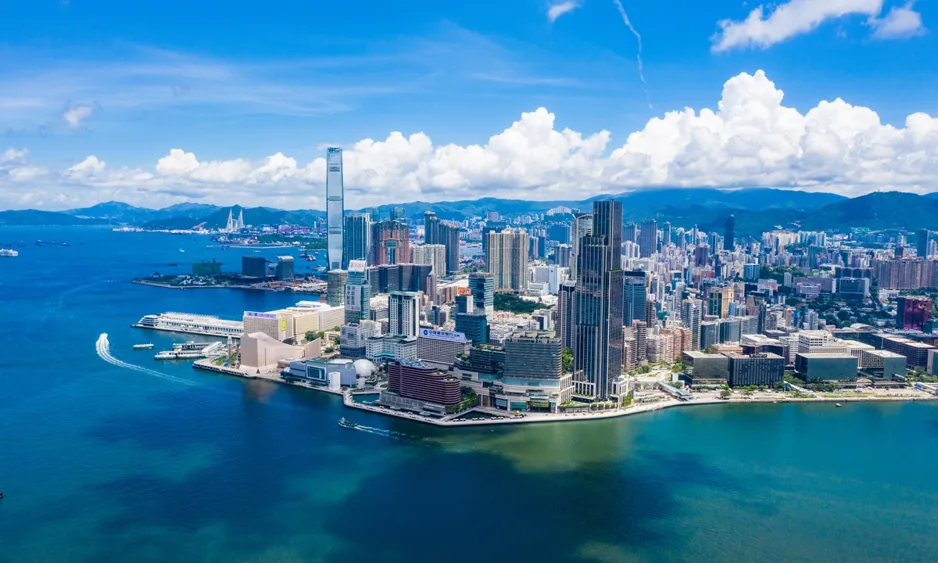HK strengthens position as super-connector in global trade

As global trade patterns experience significant transformations, Hong Kong's vital function as a 'super-connector' and 'super value-adder' is increasingly highlighted, according to Paul Chan Mo-po, the Financial Secretary of the Hong Kong Special Administrative Region (HKSAR). This assertion comes as the city strengthens its advantages amid global shifts and ongoing geopolitical tensions.
In an essay released on the official HKSAR government website, Chan emphasized Hong Kong's role in fostering new growth areas, which also aligns with the broader objectives of national development. He pointed out that the current changes in regional trade dynamics are creating opportunities for the city's various sectors.
Chan remarked that the reconfiguration of international trade landscapes, driven by geopolitical tensions and tariff disputes, presents new developmental prospects for Hong Kong's trade, shipping, financial, and professional services sectors.
He urged that if Hong Kong can adeptly grasp these opportunities during its economic transition, it could turn the challenges posed by both traditional and emerging trade models into a catalyst for accelerated economic advancement and restructuring.
Recent data highlighted by Chan demonstrated robust performance in Hong Kong's trade metrics. Specifically, the city has seen year-on-year double-digit growth in merchandise trade recently, further solidifying its position as a transit hub.
For instance, during the first half of this year, exports of goods to Vietnam vaulted by over 50 percent, with exports to Malaysia rising approximately 30 percent. Similarly, imports from Vietnam surged by roughly 70 percent and imports from Malaysia increased by about 30 percent, according to official statistics.
Chan noted that this surge in trade activities indicates that numerous exporters may be shipping goods earlier to evade potential tariff-related pressures, showcasing the opportunities emerging from the evolving international trade environment, particularly in regard to deepening regional trade collaboration.
The adaptability demonstrated by Hong Kong amidst disruptions in global trade affirms its strategic role as a regional hub, especially in bolstering ties with ASEAN nations, as noted by Liang Haiming, the dean of the Belt and Road Research Institute at Hainan University.
Chan further underscored the definition of new development possibilities stemming from the integration of supply chains in light of altered trade dynamics, particularly concerning bulk commodities like non-ferrous metals. He asserted the importance of ensuring stability and resilience in both national and regional metal supply chains.
Earlier this year, Hong Kong joined the global warehouse and delivery network of the London Metal Exchange (LME), a significant milestone tightening the connection between the Chinese mainland and global metal trading markets. With all eight approved LME warehouses in Hong Kong operational by August, over 8,000 tons of LME-registered warrants have reportedly been issued.
Chan explained that these LME-approved warehouses enhance the efficiency of non-ferrous metal allocation, lower costs, and secure a stable supply of vital metal resources, stimulating the growth of related financial services, including trade finance, insurance, and risk management.
These advancements uniquely position the HKSAR to boost commodity trading denominated and settled in yuan, thereby advancing the city's offshore yuan business and supporting the careful internationalization of the currency. Additionally, to facilitate Chinese enterprises in expanding globally, especially along the Belt and Road Initiative, Hong Kong is promoting itself as a hub for cross-border supply chain management.
Read These Next

Market Shifts Amid Geopolitical Tensions and Inflation
Analysis of current market sentiment reflecting changes in geopolitical tensions and inflation, emphasizing corporate strategy adjustments and risk management approaches in light of evolving economic conditions.

AG600 Kunlong Amphibious Aircraft Completes Production Test Flights
The AG600 Kunlong amphibious aircraft completed test flights, advancing delivery and enhancing China's emergency response capabilities.

Interbank Certificate of Deposit Funds Face Major Shrinkage
Interbank deposit note funds fell below 130B yuan, down 60% from 355B, as investors seek diversified portfolios.
